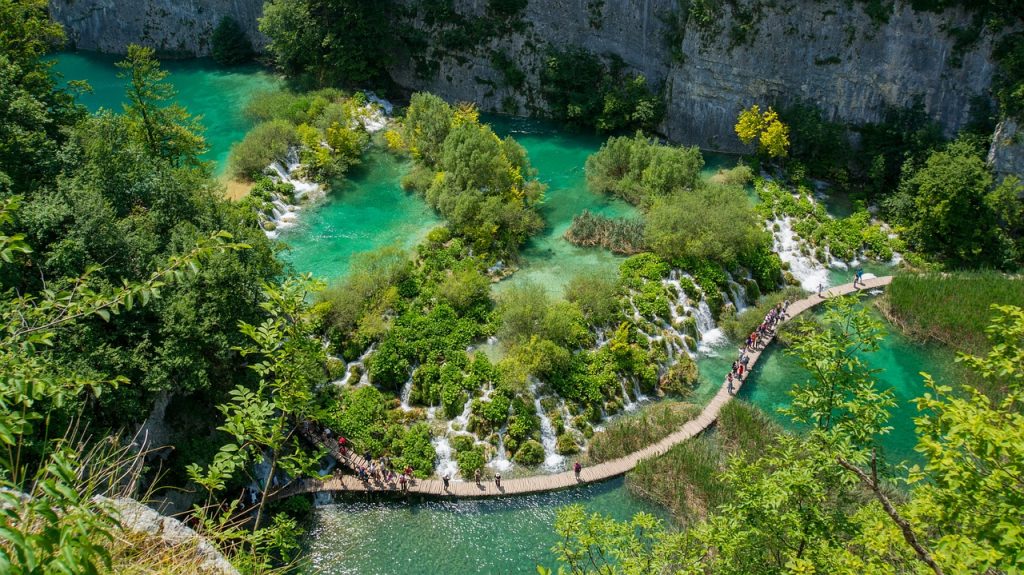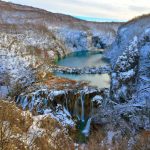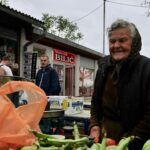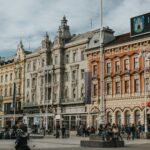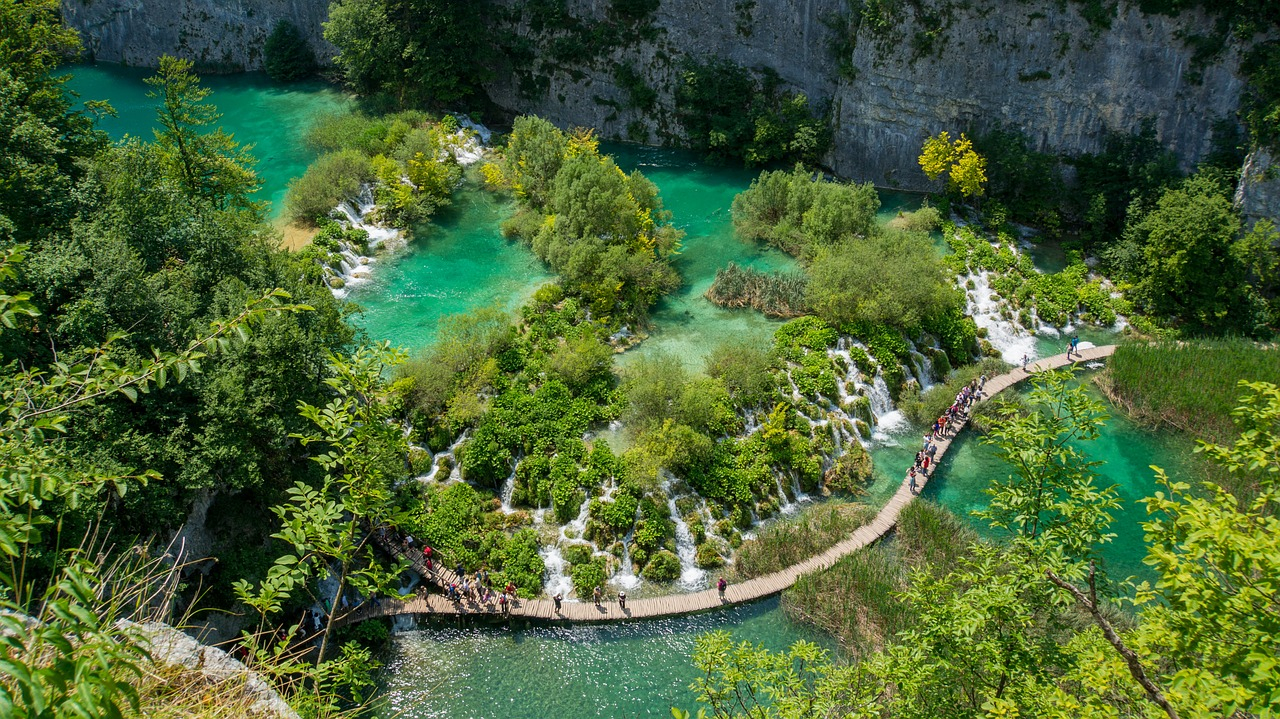
October 4, 2020 – Plitvice Lakes National Park is developing a zero-waste strategy. A look at the UNESCO-protected park’s sustainable development.
HRTurizam writes that Plitvice Lakes National Park is at first associated with green and sustainable development. However, a few years ago, it was just the opposite. Fortunately, some of the significant problems have been solved, such as the congestion of visitors and septic tanks, and today the situation is much better than several years ago.
Thus, Plitvice Lakes National Park uses electricity from renewable sources for the last two years. This week, for the second year in a row, they received the ZelEn certificate, which confirms that 6,351 MWh of electricity was delivered from renewable sources.
In this way, Plitvice Lakes National Park procures electricity from certified hydropower plants, with special attention paid to evidence of the harmlessness of the power plant’s impact on the environment and the disposal of hazardous waste, according to Plitvice Lakes National Park.
This is green energy obtained exclusively from renewable sources, which is delivered by HEP through the ZelEn certificate. Also, the buyer of ZelEn acquires the right to use the trademark ZelEn – Friend of Nature for promotional and marketing purposes, which is imperative today. Otherwise, according to HEP, green electricity is more expensive, i.e., additional 20 eurocents or about 1.5 kuna / MWh.
In 2018, Plitvice Lakes National Park introduced new lighting that uses LED technology that consumes up to 50% less electricity and is more favorable for wildlife because the light is not scattered in all directions but is directed only to the narrower area around the trail. The lighting is also programmed to work at 40% intensity for most of the night when there is no need for intense light.
“It is imperative to us that flora and fauna feel the presence of man and his technologies as little as possible, so this project was of great importance,” states Plitvice Lakes.
Food waste is a big challenge today. Due to a considerable amount of it, but also the use of soil, water, and energy to produce excessive amounts of food, our footprint on the planet are colossal, and analyzes indicate that as much as 70% of biodiversity is lost by deforestation to agricultural land.
Unfortunately, Croatia does not lag behind global data. We throw away about 400,000 tonnes of food a year, contributing to European figures around a staggering 90 million tonnes, about 20 percent of total food production. i.e., 173 kilograms per capita. The value of the food thrown away is 143 billion euros. Also, for the production, distribution, and storage of food, natural resources are consumed, and the ecological footprint is further increased. That is why the World Conservation Organization (WWF) has recognized food waste as one of the most important programs of its work.
It is for this reason that, together with the Jezero Hotel of Plitvice Lakes National Park, it has joined forces in a project to reduce food waste.
“As a UNESCO-protected national park, the importance of influencing nature conservation and raising awareness about waste reduction is an important determinant of our actions. As we manage several catering and accommodation facilities, we are faced with the great challenge of reducing our environmental impact. Through numerous activities and projects with which we started, we strive for a “zero waste” strategy,” according to Plitvice Lakes National Park.
With the introduction of biodegradable packaging in 2015, removing plastic from business began. All generated waste in the hotel is separated, while biowaste is used to produce biofuel and animal feed.
Promotional materials are printed on eco paper, food is procured through green procurement and cooperation with WWF.
“With proper internal communication, communication with guests in our hotels through informative and educational messages and excellent cooperation with WWF on this commendable project, we believe in excellent results, and we are proud that our largest hotel Jezero was among the first hotels in Croatia with this project,” concluded Plitvice Lakes National Park.
Plitvice Lakes National Park finally has a clear Management Plan, visitor counters, online ticket purchase, electric vehicles as well as an electric boat are used, products from local family farms are encouraged and used, and they received the green light from UNESCO, which has just monitored all protection processes and even threatened to remove Plitvice Lakes from the UNESCO list. The situation today is much different than 5 or more years ago.
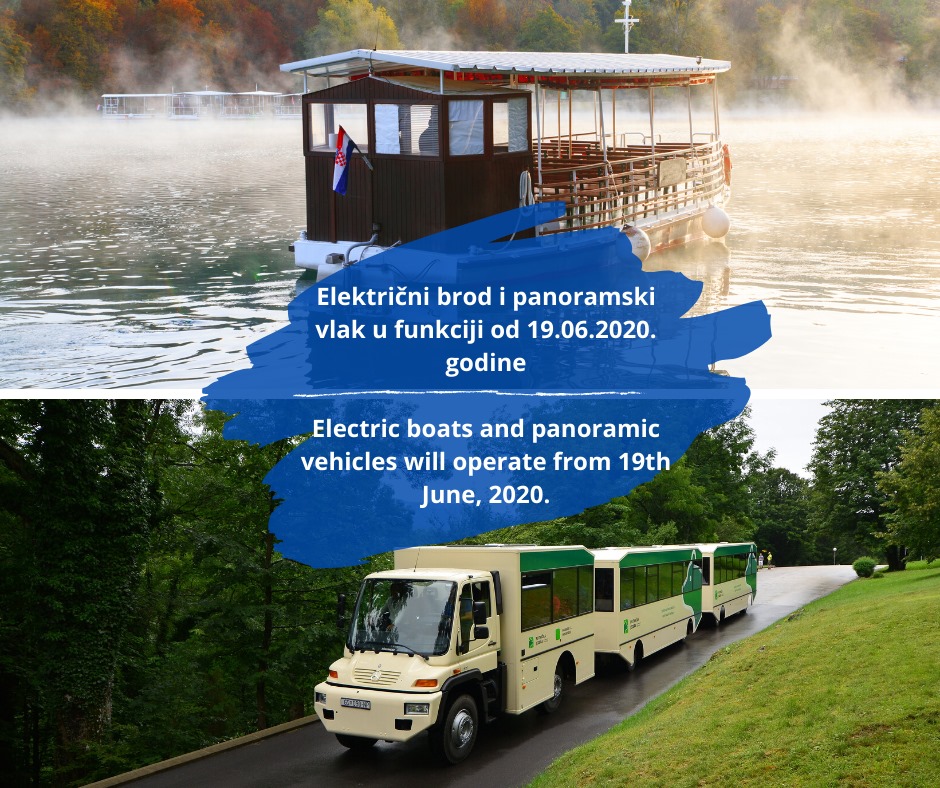
Plitvice Lakes
“The management plan sets basic goals in achieving the vision of the National Park, according to which a good way of managing the protected area and cooperation with the local community is the foundation of sustainable development. In achieving these goals, special attention should be paid to preserving the unique universal value of the Park, preserving the tradition and cultural identity of the area, sustainable development of the local community and building a partnership in which the local community recognizes the Park as part of its identity.”
You can download the Plitvice Lakes National Park Management Plan until 2028 HERE.
The UNWTO defines sustainable tourism as tourism that fully considers current and future economic, social, and environmental impacts and takes care of the needs of visitors, sectors, environment, and destinations.
Therefore, sustainable tourism should make optimal use of environmental resources that are a key element of tourism development, retain essential ecological processes, and protect natural heritage and biodiversity. Respect the destination’s socio-cultural authenticity, preserve their built and living cultural heritage and traditional values, contribute to intercultural understanding and tolerance, and ensure that economic activities are sustainable and long-term.
The World Wide Fund for Nature (WWF) has been the leading voice for nature for more than half a century, and they also operate in Croatia.
Crowds of tourists coming to the Adriatic beaches, islands, towns, and cities cause enormous pressure on both infrastructure and natural resources. In response, WWF points out our protected areas are looking for new, commercially viable alternatives in the form of ecotourism.
Mass tourism is not inclined to care about nature – and the consequences are disastrous. Tourism is one of the main causes of ecological collapse in the region. Some once untouched places can no longer be rebuilt today. Unsustainable tourism activities also harm protected areas. We also know the negative effect of Instagram destinations, where they suddenly become so popular that they ruin an entire destination that cannot accommodate so many tourists.
Tourism, if well managed, can support nature conservation while contributing to sustainable development and providing opportunities for income and a better quality of life for local people, the WWF said, and add that caring for natural heritage through protected areas is key to sustainable development and is the foundation of socio-economic well-being. A more efficient and ecologically oriented form of tourism or ecotourism.
In response to these key issues in Croatia, WWF focused on four components in its work on tourism: the project should have a positive impact on the environment and contribute to nature protection and conservation, commercial sustainability, local community development, and respect for the culture. Local circumstances, traditions, values, and human rights and gender must be respected.
Today, more than ever, the focus is on sustainable development and ecology, and destinations that go that route will certainly benefit.
For the latest travel info, bookmark our main travel info article, which is updated daily.
Read the Croatian Travel Update in your language – now available in 24 languages.
Join the Total Croatia Travel INFO Viber community.

